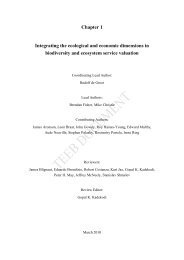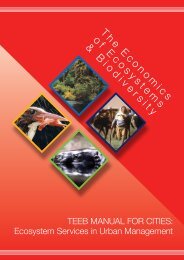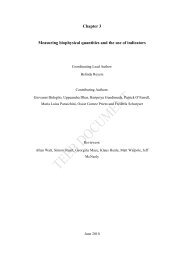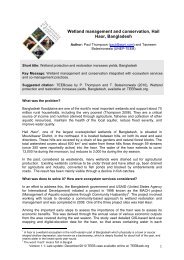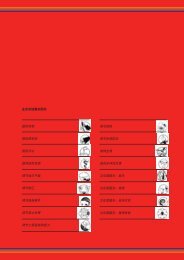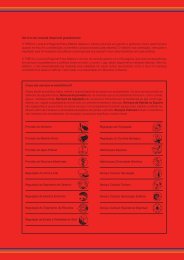Download (PDF, 6.71MB) - TEEB
Download (PDF, 6.71MB) - TEEB
Download (PDF, 6.71MB) - TEEB
Create successful ePaper yourself
Turn your PDF publications into a flip-book with our unique Google optimized e-Paper software.
6.4<br />
“People who love soft methods and<br />
hate inequity, forget this – that reform<br />
consists in taking a bone from a dog.<br />
Philosophy will not do it”.<br />
Late 19th century American political commentator<br />
John Jay Chapman, quoted by Anthony Cox in OECD (2007).<br />
Phasing out subsidies can not only alleviate environmental<br />
pressures but also increase economic<br />
efficiency and reduce the fiscal burden. Freed<br />
funds can be used for more pressing funding needs,<br />
like rewarding those who provide biodiversity<br />
benefits (see Chapter 5). It is therefore important to<br />
look beyond environmentally harmful subsidies and<br />
also target subsidies that have clearly outlived their<br />
purpose, are not targeted at their stated objectives or<br />
do not reach their objectives cost-effectively.<br />
Unsurprisingly, there are many calls for subsidy reform<br />
and a lot of rhetorical support. More concretely, there<br />
is some policy support and action. The OECD has<br />
called for subsidy removal or reform in many fora and<br />
agricultural and fisheries subsidies are on the WTO’s<br />
Doha development agenda. The 2002 Johannesburg<br />
World Summit on Sustainable Development also highlighted<br />
the need to reform subsidies for agriculture,<br />
fisheries and energy. In the realm of global environmental<br />
policy, several multilateral environmental agreements<br />
(MEAs), such as the Convention on Biological Diversity,<br />
have drawn attention to the impacts of subsidies<br />
on the environmental assets that MEAs protect (CBD<br />
2004).<br />
For energy, the G-20’s recent commitment to phase<br />
out inefficient fossil fuel subsidies is a welcome step<br />
which needs to be replicated by others and expanded<br />
to other types of subsidy.<br />
REFORMING SUBSIDIES<br />
MAKING REFORM HAPPEN<br />
Many countries already foresee priority action on subsidy<br />
removal, possibly in the context of (environmental)<br />
fiscal reform (World Bank 2005). A still small but increasing<br />
range of successful subsidy reforms can<br />
now been seen around the world (see Boxes in this<br />
chapter). And yet, with few exceptions, progress is<br />
too slow and protracted. The reasons are rooted<br />
in the political economy of subsidy reform: in some<br />
important cases they are also linked to technological<br />
and institutional barriers.<br />
6.4.1 ANALYTICAL TOOLS<br />
A range of useful tools is available to help policymakers<br />
identify subsidies whose reform offers potential<br />
benefits and assess such benefits, including for the<br />
environment:<br />
• the ‘quick scan’ model (OECD 1998) addresses<br />
the questions: “is the support likely to have a<br />
negative impact on the environment?” and “does<br />
the support succeed in transferring income to<br />
the intended recipient”?<br />
• the ‘checklist’ (Pieters 2003) provides some<br />
policy guidance by addressing the question:<br />
“is the subsidy removal likely to have significant<br />
environmental benefits?”<br />
• where the checklist delivers a positive result,<br />
the integrated assessment methodology<br />
(OECD 2007a) will help create a comprehensive<br />
story on the effectiveness of the subsidy rather<br />
than a pass-fail test, and look at alternative<br />
policies;<br />
• for ‘green’ subsidies, a specific checklist<br />
(UNEP 2008b) provides minimum criteria any<br />
subsidy should fulfil to prevent it from turning<br />
perverse in the long-run (see section 6.5 and<br />
Box 6.18).<br />
<strong>TEEB</strong> FOR NATIONAL AND INTERNATIONAL POLICY MAKERS - CHAPTER 6: PAGE 26



